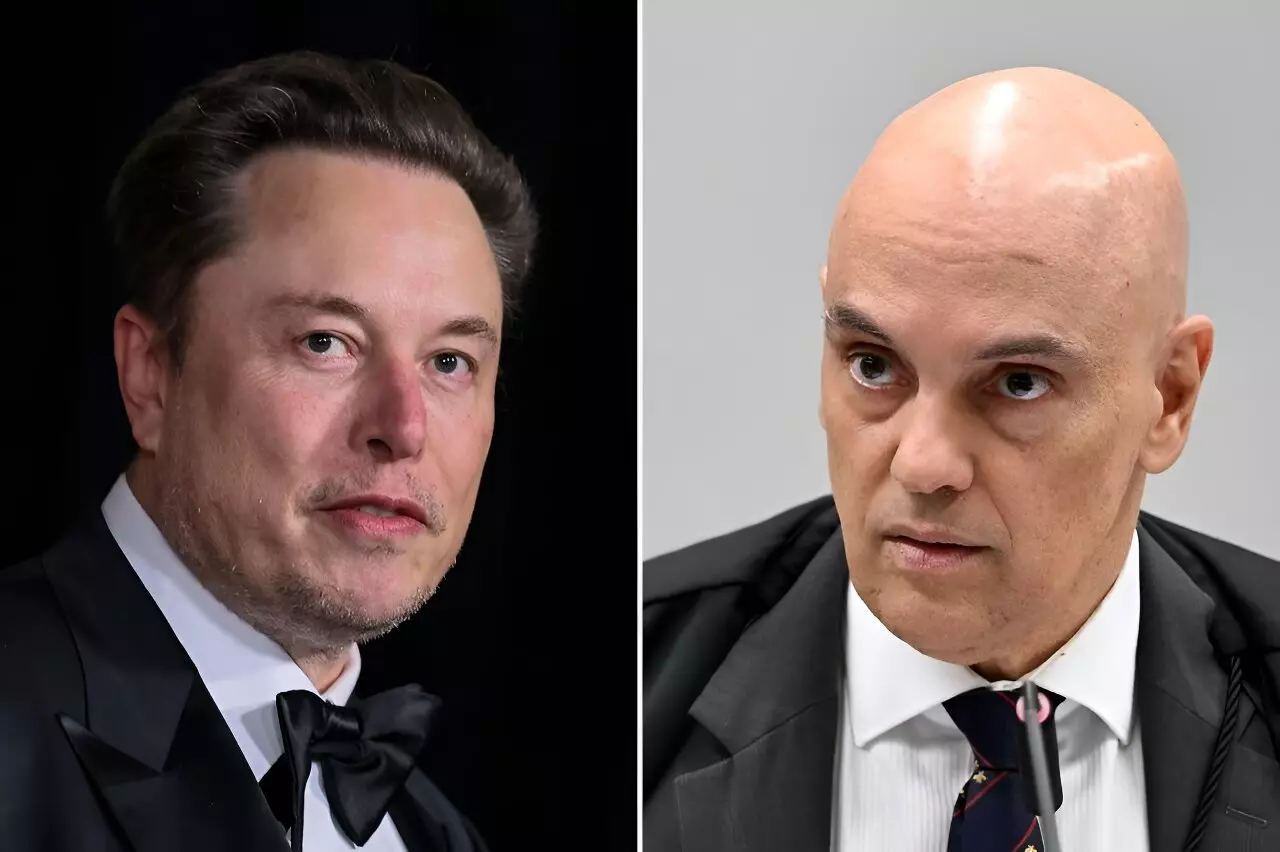In a significant twist in the ongoing saga of social media platform X, known for its controversial owner Elon Musk, a Brazilian judge has mandated the appointment of a legal representative as a condition for the service’s potential reinstatement within the country. This ruling adds yet another layer to the legal entanglements surrounding X, underscoring the platform’s difficulties in complying with local regulations. Brazilian Supreme Court Justice Alexandre de Moraes has made it clear that the platform has not fully satisfied the necessary criteria to lift its suspension, which suggests a prolonged conflict ahead.
The friction between Musk and Justice Moraes has escalated, evolving into a battleground over freedom of speech and corporate accountability. The conflict ignited after Musk’s refusal to deactivate multiple right-wing accounts accused of spreading misinformation, prompting Moraes to impose a suspension on the platform. This clash goes beyond mere regulatory compliance—the underlying issues touch upon the very fabric of democracy in Brazil and the role of social media in shaping public opinion. With over 22 million users in Brazil prior to the ban, the implications of this conflict extend far into the social and political landscape of the country.
The consequences of X’s noncompliance with the court’s directive have been severe, including hefty fines amounting to at least five million reals (approximately $913,000). The court’s decision to penalize X for circumventing the suspension order reflects a broader push to ensure that social media platforms adhere to local laws. Moraes’ interpretation of X’s actions as “malicious” reveals the judiciary’s desire to impose strict accountability on tech companies that operate in Brazil. The controversy deepened further when X claimed that its brief re-accessibility was unintentional, the result of a technical mishap rather than a deliberate act of defiance.
Responses to the suspension have been polarized along political lines in Brazil. President Luiz Inacio Lula da Silva’s supporters welcome the judiciary’s stance as a necessary measure against disinformation, while critics from the right, including allies of former president Jair Bolsonaro, denounce it as unconstitutional censorship. This rift highlights the challenging dynamics between digital platforms, governmental authority, and the public sphere, showcasing the contentious atmosphere surrounding digital discourse in Brazil.
As the conflict unfolds, the future of X’s operations in Brazil remains uncertain. Moraes has taken further action to freeze the assets of both X and Musk’s satellite internet venture, Starlink, indicating that the judicial system aims to enforce compliance through various means. Meanwhile, Musk’s enigmatic and often inflammatory rhetoric on social media, dubbing Moraes an “evil dictator,” complicates the scenario. This evolving story raises profound questions about the balances of power in the digital age—particularly the responsibilities of tech giants and their influence on democratic processes.
X’s situation in Brazil serves as a microcosm of the global struggle between technology, law, and governance, urging both the platform and its users to reflect on the implications of their digital footprints in the world’s evolving socio-political frameworks.


Leave a Reply